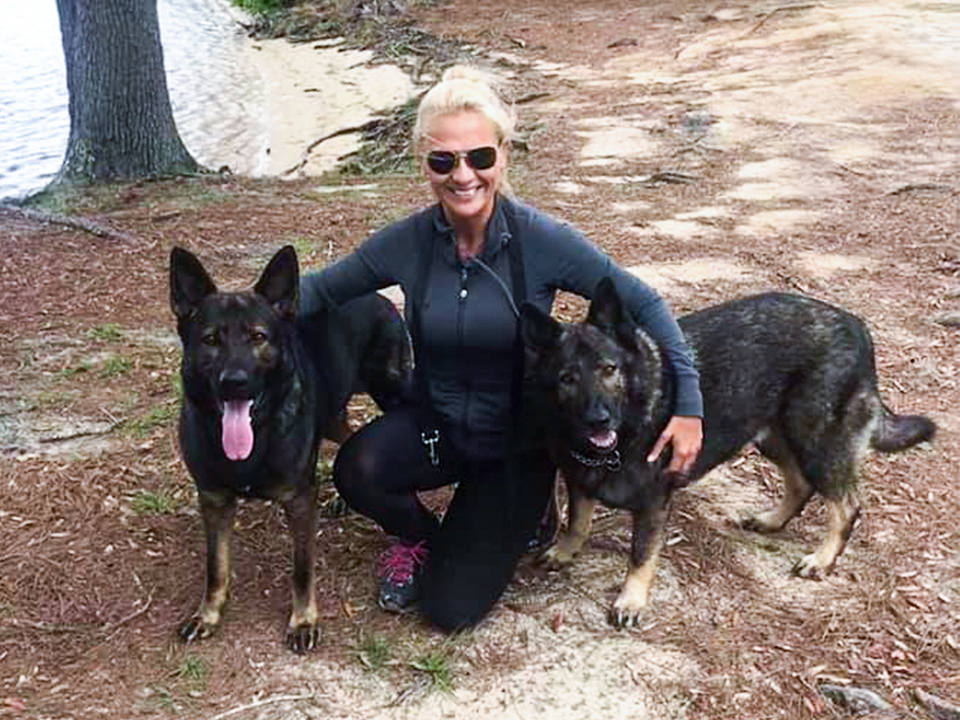The Ultimate Puppy Checklist
Where Do You Start? Are you Ready?
Deciding on breed
Breed, what breed are you interested in? Deciding on the perfect breed of a pet can be an exciting yet challenging task. With so many options available, it’s important to consider various factors before making a decision. By carefully evaluating these factors, you can ensure that you choose a breed that aligns with your lifestyle and preferences.
Size of the breed and your lifestyle or living arrangements. Different breeds come in different sizes, ranging from small toy breeds to large working breeds. It’s essential to assess your living situation and available space to determine whether a smaller or larger breed would be more suitable for you.
Energy is another factor to consider when choosing a breed. Some breeds are highly active and require plenty of exercise and mental stimulation, while others are more laid-back and content with moderate activity levels. Evaluating your own activity level and commitment to exercise will help you find a breed that matches your energy levels.
Temperament is also an important consideration when selecting a breed. Some breeds are known for their friendly and outgoing nature, while others may be more reserved or independent. Consider your personality type and what kind of temperament would best fit your lifestyle, family and preferences.
Grooming requirements should not be overlooked when choosing a breed. Some breeds have long or curly coats that require regular brushing and professional grooming, while others have shorter coats that are easier to maintain. Assessing how much time, effort, and resources you are willing to dedicate to grooming will help narrow down your options.
Health issues should be researched before picking a specific breed. Some breeds are more prone to certain genetic conditions or have higher maintenance health needs than others. Understanding these potential health concerns will allow you to make an informed decision about the long-term care requirements of different breeds.

Adopting or Buying from a Breeder:
Pros and Cons
When it comes to adopting a pet, one of the key advantages is the opportunity to give a loving home to an animal in need. Shelters and rescue organizations are filled with animals who are looking for their forever homes, and by adopting, you can make a significant impact on their lives. Additionally, adoption fees are often much lower than the cost of purchasing from a breeder.
Furthermore, adopting from a shelter or rescue organization typically means that the animal has already been spayed or neutered, vaccinated, and may even have received basic training. This can save you time and money in terms of veterinary care and training expenses.
On the other hand, buying from a reputable breeder allows you to have more control over the characteristics and breed traits of your pet. Breeders carefully select mating pairs to produce offspring with specific qualities such as temperament or appearance. This can be appealing for individuals who have specific preferences or requirements for their pets.
Moreover, purchasing from a breeder often provides more information about the pet’s lineage and health history. Responsible breeders conduct health screenings on their breeding animals to minimize genetic disorders in their offspring.
However, it is important to note that not all breeders are ethical or responsible. Some may prioritize profit over the well-being of their animals, leading to potential health issues down the line.
Must Have Puppy Products
- Collar
- Identification tags
- 15 foot training leash and 6 foot walking leash
- Dog bed
- Crate or containment fence/gate
- Food and water bowl
- Puppy food
- Puppy treats
- Clicker for training
- Chew toys
- Grooming products (nail trimmer, puppy brush, shampoo etc.)
- Absorbent Potty training pads
- Cleaning products
- Poop bags
- (Pro-Tip: Consider a door hanger with bells on it. Basic training will include teaching your puppy to use it to signal they need to use the bathroom).
Understanding Puppy Growth and Development Stages
Welcoming a new puppy into your home is an exciting and joyful experience. As a responsible pet owner, it’s important to have a good understanding of the various stages of puppy growth and development. By familiarizing yourself with these key milestones and behaviors, you can provide the best care and support for your furry friend.
Puppy growth can be divided into several distinct stages, each with its own unique characteristics. The first stage is the neonatal stage, which lasts from birth until about two weeks of age. During this time, puppies are completely dependent on their mother for nourishment and warmth.
As they enter the transitional stage between two to four weeks old, puppies start to open their eyes and ears. They begin to explore their surroundings more actively and develop basic motor skills. This is also when they start to interact with their littermates through play.
The next stage is known as the socialization period, which occurs between four to twelve weeks old. It is during this critical time that puppies learn important social skills from their mother and littermates. They also become more receptive to human interaction and should be exposed to various environments, people, sounds, and experiences in order to develop into well-rounded adult dogs.
From twelve weeks onwards until about six months old comes the juvenile stage. Puppies during this phase experience rapid growth physically but also mentally. They may exhibit increased independence while testing boundaries as they navigate through adolescence.
Proper nutrition plays a crucial role in supporting healthy growth throughout all these stages. Providing a balanced diet specifically formulated for puppies ensures they receive essential nutrients for bone development, muscle growth, cognitive function, and overall well-being.
Understanding your puppy’s growth patterns can also help you anticipate certain behaviors or challenges that may arise along the way. For example, teething typically occurs around three to six months old when puppies start losing their baby teeth and adult teeth begin to emerge. This can result in chewing and discomfort, so providing appropriate chew toys can help alleviate the urge to chew on household items. By gaining knowledge about puppy growth and development stages, you can create an environment that promotes their physical and emotional well-being. Remember to consult with your veterinarian for personalized advice tailored to your puppy’s specific needs. With the right care, love, and attention, you’ll be able to watch your furry companion grow into a happy and healthy adult dog.
First Veterinary Visit
Taking your puppy for their first veterinary visit is an essential step in ensuring their overall health and well-being. During this visit, your veterinarian will not only perform a medical exam they will also provide important vaccinations, initiate preventative worm and flea/tick control and ask you if you would like your pup microchipped. (Pro-Tip: Have your pup microchipped. It will only take one time for them to mischievously escape and land them in puppy jail. If there is no identification on your puppy, such as a dog tag with your contact information the pound will not know who to contact.)
Worming is a necessary precaution to protect your puppy from internal parasites that can cause various health issues. These parasites, including roundworms, hookworms, and tapeworms, can be present in the environment or transmitted through contact with infected animals. By administering appropriate deworming medication, your veterinarian will help eliminate any existing worms and prevent future infestations.
Flea and tick prevention is equally vital in safeguarding your furry friend against external parasites that can cause discomfort and transmit harmful diseases. Fleas and ticks are prevalent in most environments and can easily latch onto your puppy’s fur during walks or outdoor playtime. Your veterinarian will recommend safe and effective preventive treatments that repel these pests, reducing the risk of infestation. Most of these are age and weight based so be cautious if choose to purchase them outside of your vet’s office. Talk with your vet first to ensure it is safe for your puppy.
The first visit is the perfect opportunity to continue to reinforce good behavior through positive reinforcement. (Pro-Tip: Always carry bite-size treats with you. An immediate reward for good behavior creates a strong foundation of a pups basic training). You do not want to wait until the puppy becomes older and then attempt to teach proper vet etiquette.
To wrap up part 1 of 2 for your ultimate puppy checklist; preparation and pre-planning are key. Both of those objectives will help you in reducing stress and allow more time for making memories. This new adventure will be a work in progress and there will be ups and down. If you can embrace the fact that the more time you put in, the more you will get out you have won half the battle already. We have only covered a few of the basics in this post, stay tuned for Part 2. Part 2 will explore crate training techniques, nipping and biting, exercise regimens, and setting up a feeding and potty schedule. This checklist should serve as a guide to help you through your journey. Just note every dog and their handler will have a unique situation and must adapt, improvise and overcome as needed.


























